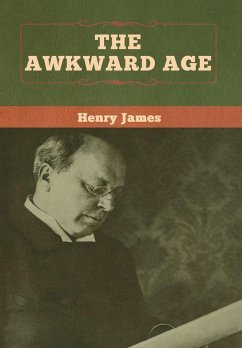
The Awkward Age
Introduction by Cynthia Ozick

PAYBACK Punkte
9 °P sammeln!
Henry James had arrived at such mastery of the forms and uses of fiction by the time he published The Awkward Age in 1899 that this story of a young girl introduced into a casually corrupt circle of sophisticates is at once a universal drama of innocence confronting evil, a detailed examination of a social order, and a stunning picture of a civilization in crisis. On the verge of what was to be his greatest period of creativity, James produced, in The Awkward Age, one of the finest, most rounded, and, in some ways, most intimate and revealing of his long string of masterpieces. Introduction by...
Henry James had arrived at such mastery of the forms and uses of fiction by the time he published The Awkward Age in 1899 that this story of a young girl introduced into a casually corrupt circle of sophisticates is at once a universal drama of innocence confronting evil, a detailed examination of a social order, and a stunning picture of a civilization in crisis. On the verge of what was to be his greatest period of creativity, James produced, in The Awkward Age, one of the finest, most rounded, and, in some ways, most intimate and revealing of his long string of masterpieces. Introduction by Cynthia Ozick














